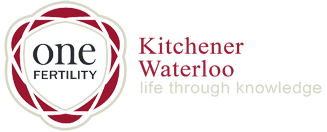Of course, everyone’s situation is unique. Some women have absolutely no trouble getting pregnant well into their 30s and even 40s, while others may struggle with age-related infertility. As a result, they may require treatment or seek out alternative methods of conception.
Female fertility goes through a lot of changes as women get older. Keep reading to learn about the impact this can have on their ability to conceive a child as they get older.
How Does Age Affect Female Fertility Rates?
Female fertility usually peaks when a woman is in her 20s. But a lot of women aren’t always financially or even emotionally ready to become parents at this stage in their lives. An increasing number of women are waiting until their early to mid-30s before they even decide if they want to have kids. Unfortunately, this is around the time when female fertility starts to drop drastically.Despite this, most women have the ability to naturally conceive a full-term pregnancy up until the age of 35. Female infertility rates and the risk of miscarriage or other age-related pregnancy complications increase after the age of 35.
Why Female Fertility Drops Rapidly after 35
Unfortunately, the decline in female fertility happens more rapidly for women than it does for men. Men can stay fertile well into their 50s and slowly lose their fertility as they age. But for the majority of the female population, the drastic decline happens over a span of a few years and this leads to higher rates of invitro fertilization in Ontario as women approach their 40s and beyond.Moreover, the older you are as a woman, the longer it can take to conceive a child either naturally or through artificial insemination. The risk of having a high-risk or multiple pregnancy (twins, triplets, quadruplets) also increases. Women of an advanced reproductive age tend to have fewer viable eggs left. To compensate for this, their bodies produce significantly more follicle stimulating hormones (FSH), which is needed for ovulation.
Conditions That Affect Fertility in Older Women
- Decreased number of viable eggs
- Remaining eggs might have abnormal chromosomes, leading to higher rate of birth defects
- Uterine fibroids
- Endometriosis
- Health conditions that develop with age (e.g., high blood pressure, heart conditions, etc.)
Treatments for Age-Related Female Infertility
- Invitro fertilization (IVF)
- Intrauterine insemination (IUI)
- Ovarian stimulation
- Egg donation
- Egg freezing
- Surrogacy





